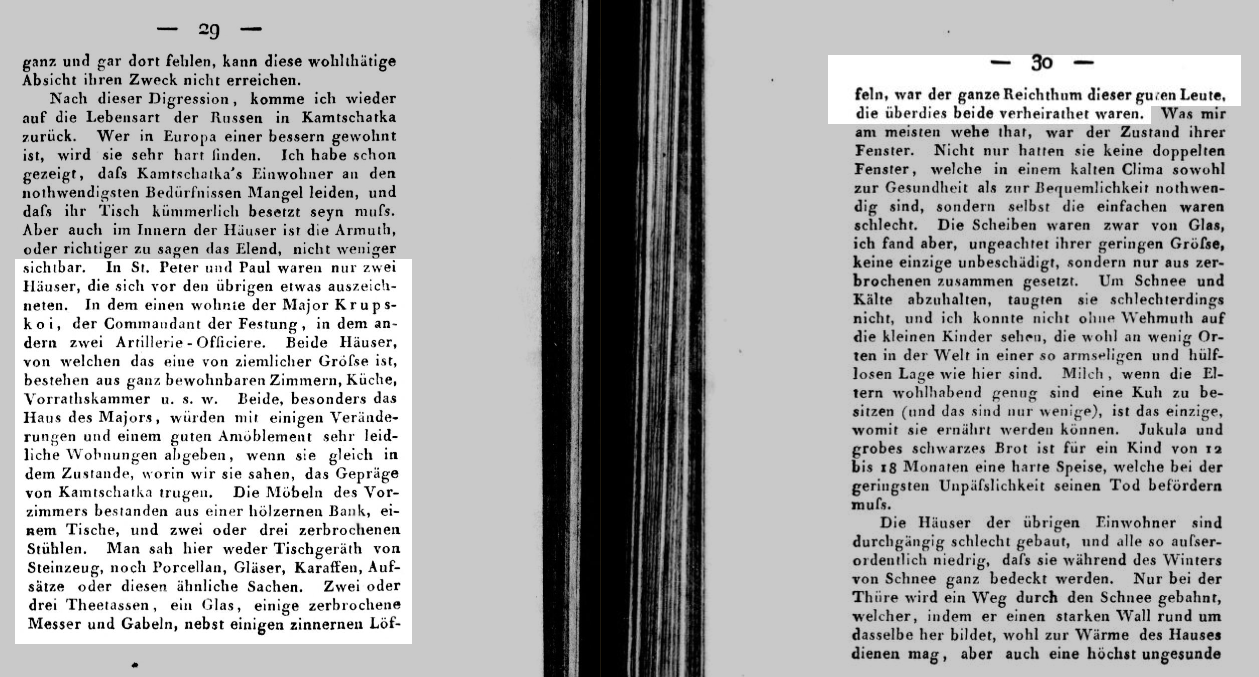Because of the context, I interpret it as both houses married with each other, for example the Majors sister with one of the artillery officers or the uncle of the Major is the father of the artillery officers or that both (the only 2 people in the house of the Major) would be married with each other. House in old texts can be both in the meaning of the building as well as in the meaning of the family/clan leaving there like in House of Windsor
Here the explanation how i come to this conclusion:
The text starts with how poor the life in Kamtschatka is. Then it talks about the two richest houses, the Major and the two artillery officers, which are also in bad state to demonstrate how poor the rest of the area must be if even the richest are that poor. An important word the other answers seems to have missed is the word "überdies". This word is used when going from something bad to something worse or from good to better. So the question is, which meaning of "verheiratet" would make it worse? I didn't find a way why it would be bad to be married to someone else in general. So I asked myself, what if the houses where married with each other? That would mean that both houses of the richest people in the area would be more interweaved than usual. That would mean that they would have more power than the rest of the area and that the others in the village would have less chance to get wealthier because they would use their power to ensure to keep their power and wealth.
My other interpretation would be that "dieser guten Leute" refers to the Major and his wife living in this house and that those two are married. To mention that they were married would also fit to the description of the problematic situation of marriages in the area later in the book. (I scanned part of the book to find references to the houses but didn't find any but found this part.)
Thinking again about it I would prefer the second interpretation that it refers to the Major and his wife. But it is very ambiguous or up to interpretation in what he means, also in other parts of the book.

